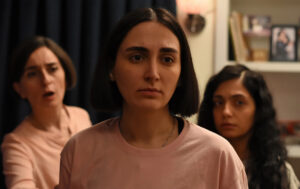The Royal Society shines a light on science’s invisible women

Last Friday professor Uta Frith of the Royal Society teamed up with Wikimedia UK to host a group edit-a-thon in favour of those women whose contribution to science has not been adequately recognised. Professor Frith is as opposed to the “pink it and shrink it” approach of marketing to ladies, as she is alarmed by the number of invisible female scientists.
Uta, who is a Professor of Cognitive Development at University College London, also lead a distinguished panel of scientists and historians, in a discussion about why female scientists are less prominent than their male counterparts.
The event, which was held at the Royal Society, also recognised Ada Lovelace Day, which was celebrated earlier in the week. It sold out weeks in advance and gave guests of the Royal Society access to their extensive collections and library staff. Wikimedia representatives then guided the team, showing them how to edit and upload information on to poorly informed and unrecognised women scientist’s Wikipedia pages.
2012 marks the Royal Society’s 350th birthday. Sadly women have only been fellows for the past 67 years, and still only make up 5% of the total. Wikipedia has a similarly poor record, with research from 2009 indicating that just 13% of their active community are female.
Uta said: “It’s shameful that when you ask people, including scientists, to name well-known female scientists and engineers they can barely get past Marie Curie. I think this is very much because they are not in our consciousness or they have not been given high enough profile for their work. Wikipedia is one of the first places that many people go for information, but if it’s not there, how will we ever learn about our scientific heroines? This event is a very small but important step towards putting these very special women in the spotlight they deserve.”
Jane Evans



















Facebook
Twitter
Instagram
YouTube
RSS